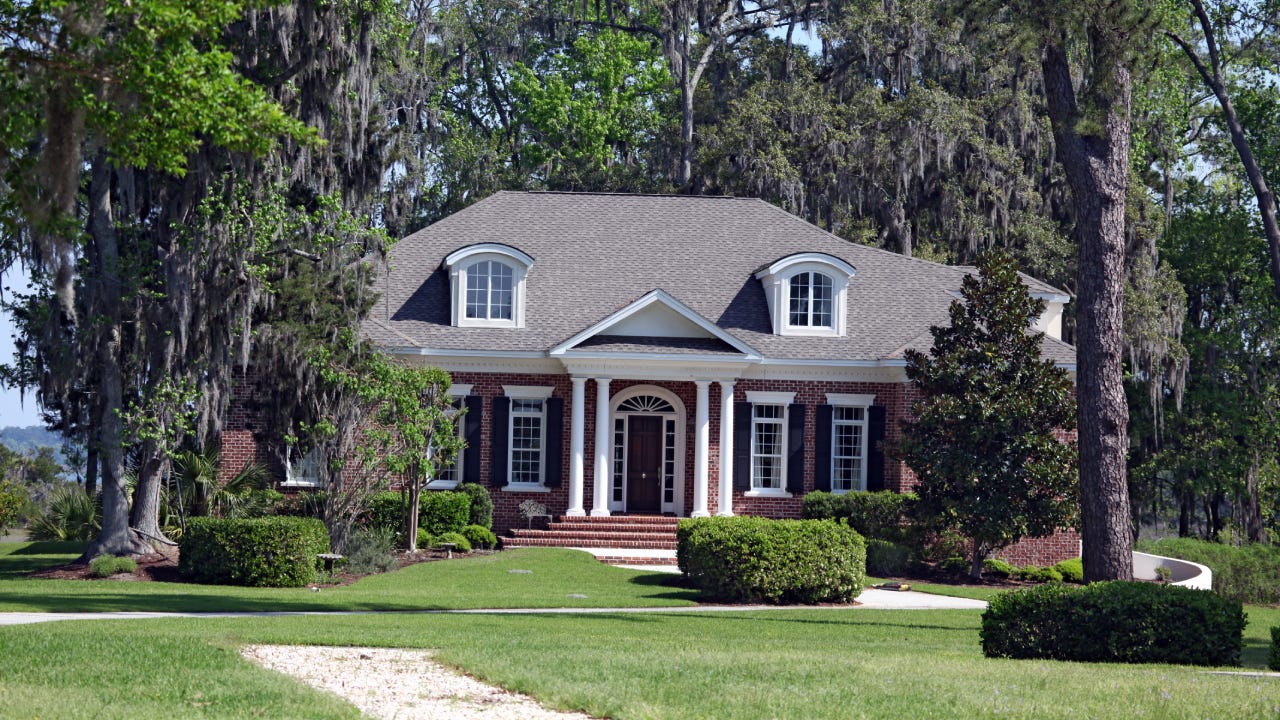Closing costs in South Carolina: Who pays for what

The final part of any real estate transaction is the closing process. When a home sale closes, both the buyer and the seller will have their own portion of closing costs to pay. These usually include various government taxes, as well as loan, title and attorney fees — but who pays what can vary widely depending on what state you’re in and the details of your deal. Here’s a closer look at closing costs in South Carolina.
How much are closing costs in South Carolina?
Average closing costs in the U.S. typically total 1.87 percent of the home’s value, according to a study by Assurance. But there’s good news for residents of the Palmetto State: South Carolina has some of the most affordable closing costs in the country, averaging just 1.45 percent.
The median home price in the state was $387,500 as of May 2024, according to Redfin data. That would put closing costs on a median-priced home at $7,246. But a lot depends on where in South Carolina the home is. In Myrtle Beach, for example, the median home price is less than the statewide median at just $270,000. So 1.87 percent for closing costs would be $5,049. But in Charleston, where the median is significantly higher at $635,000, that figure would be close to $12,000.
Who pays closing costs in South Carolina, buyers or sellers?
Whether you are buying or selling a home in South Carolina, you will be responsible for some portion of the closing costs. But each party has a different set of costs to take care of:
Closing costs for buyers
As a buyer, you will need to pay for more than just the home itself: When figuring out how much house you can afford, be sure to account for your closing costs too. These will likely include:
- Lender fees: If you’re financing the purchase with a mortgage, as most homebuyers do, your lender will likely charge a variety of fees related to applying for and originating the home loan.
- Title fees: A title search ensures the property doesn’t have any liens or ownership issues and typically costs a few hundred dollars. South Carolina buyers are usually on the hook for a title insurance policy, as well, which protects against other potential title issues.
- Appraisal fee: Your lender will require an appraisal of the home to make sure it’s worth at least the amount they’re lending you. The cost, which will be your responsibility, typically runs several hundred dollars.
- Home inspection fee: A home inspection, while not required by lenders, is a good idea — the inspector can spot minor problems before they become major, and any issues found might help you negotiate on either price or concessions. The cost of an inspection will also likely run a few hundred dollars.
- Attorney fees: South Carolina is one of many states that require homebuyers to hire an attorney. This cost can range widely depending on the details of your individual transaction.
Closing costs for sellers
Knowing which closing costs you can expect to pay when you sell your South Carolina home can help you set realistic expectations. Here are some typical closing costs for home sellers:
- Agent fees: This is likely to be your largest expense. A real estate agent’s commission fee is usually somewhere between 2.5 and 3 percent of the home’s sale price — on a median-priced $387,500 South Carolina home, 2.5 percent comes to $9,687. Sellers may or may not be responsible for their buyer’s agent’s fee as well; that will depend on the details of your individual deal.
- Title insurance: While the buyer typically covers title insurance for their lender, South Carolina sellers may pay title insurance costs for the buyer.
- Transfer tax: The state’s transfer tax, which covers the cost of transferring ownership from you to the buyer, is levied at a rate of $1.85 for every $500 in home value. For a median-priced $387,500 home, that comes to $1,434.
- Ongoing property fees: You will need to pay for property taxes and HOA fees (if applicable) right up until the day transaction closes.
- Attorney fees: While South Carolina requires homebuyers to hire an attorney, sellers are not required to do so. But you may choose to do so anyway, to make sure your interests are protected.
Lowering your closing costs in South Carolina
Certain costs, like taxes, are non-negotiable. But you may be able to negotiate some closing costs, both in the actual price and in who pays. The local market will determine how successful you might be. For example, in a market where sellers have the upper hand, buyers might not have much leverage, and the reverse is true in a buyers’ market. Realtor fees are often negotiable, especially for higher-priced homes. And buyers may be eligible for any number of financial assistance programs that can help with the down payment and closing costs, especially if they are first-time buyers.
Find a local real estate agent
Whether you’re buying or selling a home in South Carolina, an experienced agent can offer helpful insight into the local market. Talk to friends and family to get recommendations, and talk to multiple agents before you decide on one. Look for someone with expertise and a track record of success in your specific area.
FAQs
-
Yes, home sellers do pay some closing costs in South Carolina (and every state). Sellers and buyers are each responsible for different kinds of closing costs. Common seller closing costs include Realtor fees, title insurance, transfer taxes and property taxes.
-
The most expensive part of closing costs will be different depending on if you are a buyer or seller. For homebuyers, the most expensive part will likely be the fees related to securing your mortgage loan, including fees related to the loan application, credit check and origination. For sellers, the highest cost will likely be real estate agent commissions, typically 2.5 or 3 percent of the sale price to their own agent and potentially the same amount to their buyer’s agent as well.
Why we ask for feedback Your feedback helps us improve our content and services. It takes less than a minute to complete.
Your responses are anonymous and will only be used for improving our website.
You may also like

How a HELOC can advance your business

Does auto insurance follow the car or the person?




